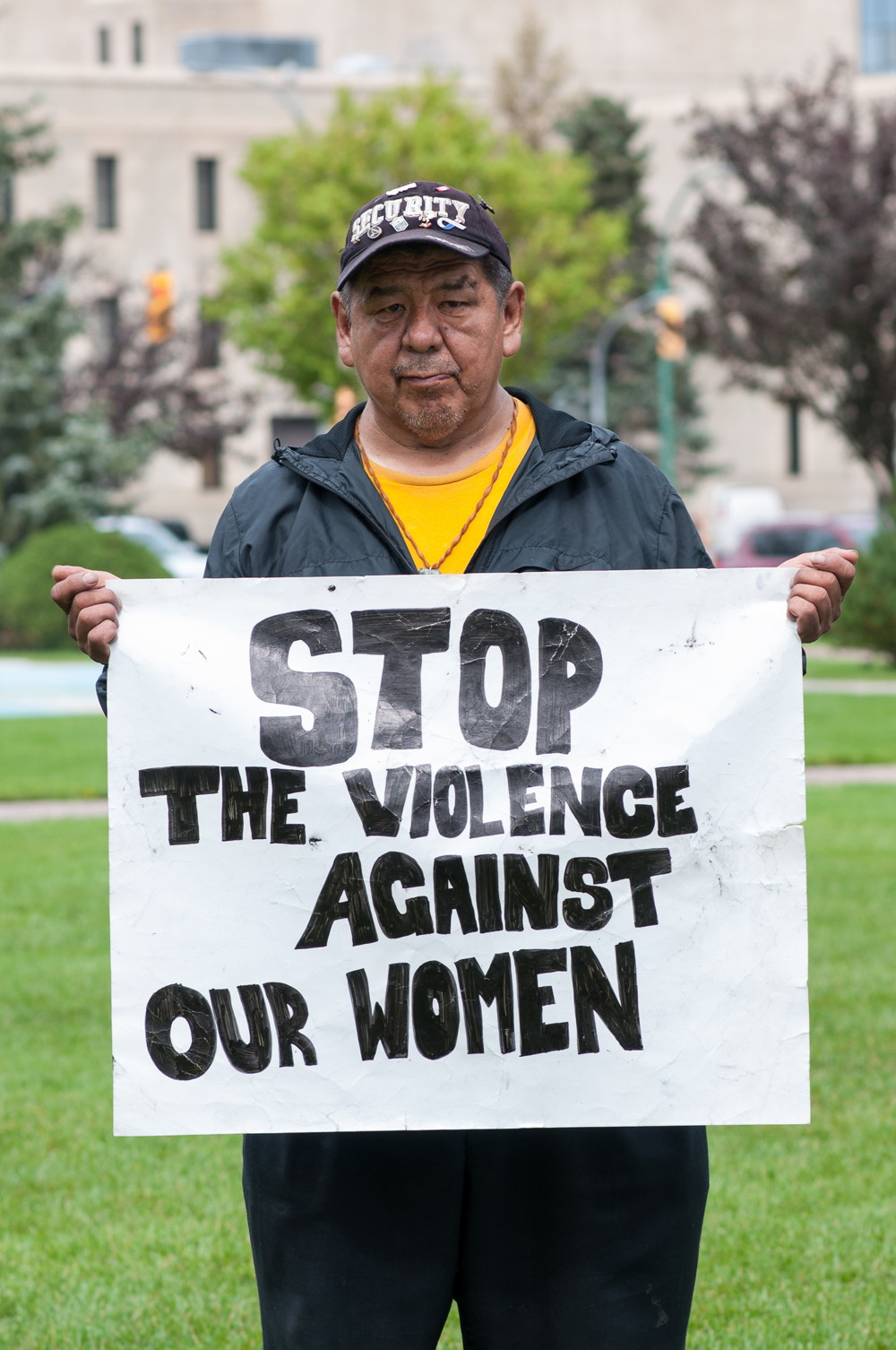The people of the protest
Memorial Park protest camp packs bags, claims small victory
The community of tents, banners, and protesters located in Memorial Park have packed up, but its impression is still being felt in the grassroots.
Dozens of people came together with a single purpose in Memorial Park: to demand an inquiry about missing and murdered Aboriginal women.
They came from many different backgrounds with different skills, but found a single purpose in making a stand together.
Tyler Fredrick, identified as a peacekeeper charged with keeping the women and children safe on site, is one such person.
Fredrick, who hails from Hamilton, Ont., arrived in Winnipeg on Aug. 22 with plans to stay with a friend. But when those plans fell through he was invited to the camp.
He joined what many of the protesters called a “brother/sisterhood,” and joined some of the camp’s leaders during their meetings at the Manitoba Legislature.
This spirit of hospitality and community was shared by all in the camp.
“No one has ever been hungry and no one has had food poisoning yet,” says Bruce Hare, who cooked for the camp, expressing gratitude for the many donations of food from families, friends, political and religious groups.
The protest began Aug. 21 when Prime Minister Stephen Harper responded to calls for a national inquiry into missing and murdered Aboriginal women by saying, “We should not view this as a sociological phenomenon. We should view it as crime.”
This was shortly after the body of 15-year-old Tina Fontaine was found in the Red River. Her death is being treated as a homicide.
Although the camp was very hospitable and welcoming, the protesters remember names and faces of women lost to history, who they feel Harper is ignoring.
Christian Swan, who worked “behind the scenes” on site, said his grandmother was shot four times.
“If Harper was in that same situation, he would investigate,” he says.
Swan is concerned not only about missing, murdered women but also of reports of sex trafficking targeting aboriginal women across the Great Lakes and the aboriginal people still disconnected from their families due to the Sixties Scoop.
Though the campers bear the grief of many generations, Kylo Prince, keeper of the sacred fire, has hope.
“I feel just being here is already a victory,” Prince says.
On Tuesday, Sept. 2 the protesters staged a demonstration at the Empress St. underpass, slowing traffic as far as Burnell St. The peaceful protest included music and dancing, and adults and children.
Among them was Kendall Wood, who is only 14, but has already established himself as a leader.
He organized a march on Aug. 21 from Circle of Life Thunderbird House to Portage and Main. The march included members of the Memorial Park camp and other children as young as seven.
“If a kid does it, maybe they will listen to us,” Wood says. Wood even started the camp’s sacred fire, which burned at the centre of the camp.
Organizers of the protest camp claimed a small victory justifying their departure on Saturday after federal Justice Minister Peter MacKay said Ottawa is open to participating in a round table discussion into missing and murdered women.
Published in Volume 69, Number 2 of The Uniter (September 10, 2014)







